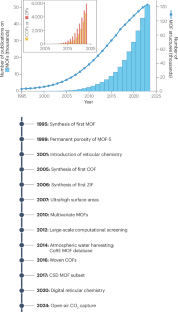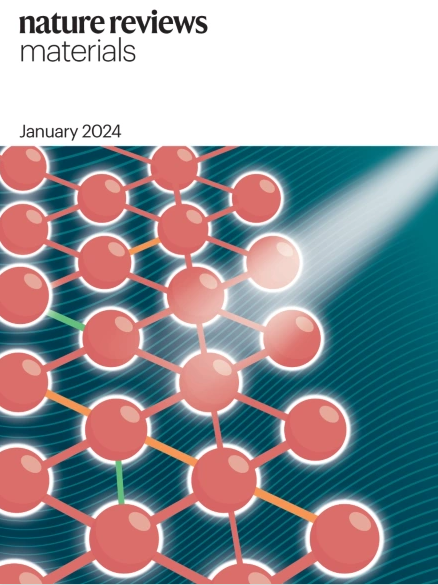网状化学的大型语言模型
IF 86.2
1区 材料科学
Q1 MATERIALS SCIENCE, MULTIDISCIPLINARY
引用次数: 0
摘要
网状化学是将分子构建单元连接成晶体扩展结构的科学,如金属有机框架和共价有机框架。大型语言模型(llm)是一种生成式人工智能系统,可以通过帮助科学家从文献中提取知识、设计材料、收集和解释实验数据来增强网状化学的实验室研究,最终加速科学发现。在这个视角中,我们探讨了用于将法学硕士应用于研究的概念和方法,包括快速工程,知识和工具增强和微调。我们讨论了“化学感知”模型如何针对特定任务进行定制,并整合到现有的网状化学实践中,将传统的由经验知识驱动的“制造、表征、使用”协议转变为基于寻找合成-结构-性能-性能关系的发现周期。此外,我们探讨了模块化法学硕士代理如何集成到多代理实验室系统中,如自动驾驶机器人实验室,以简化劳动密集型任务并与化学家合作,以及法学硕士如何降低将生成式人工智能和数据驱动的工作流程应用于结晶等具有挑战性的研究问题的障碍。这一贡献为计算和实验化学家提供了必要的见解,以利用llm在网状化学和更广泛的材料科学中发现材料。本文章由计算机程序翻译,如有差异,请以英文原文为准。


Large language models for reticular chemistry
Reticular chemistry is the science of connecting molecular building units into crystalline extended structures such as metal–organic frameworks and covalent organic frameworks. Large language models (LLMs), a type of generative artificial intelligence system, can augment laboratory research in reticular chemistry by helping scientists to extract knowledge from literature, design materials and collect and interpret experimental data — ultimately accelerating scientific discovery. In this Perspective, we explore the concepts and methods used to apply LLMs in research, including prompt engineering, knowledge and tool augmentation and fine-tuning. We discuss how ‘chemistry-aware’ models can be tailored to specific tasks and integrated into existing practices of reticular chemistry, transforming the traditional ‘make, characterize, use’ protocol driven by empirical knowledge into a discovery cycle based on finding synthesis–structure–property–performance relationships. Furthermore, we explore how modular LLM agents can be integrated into multi-agent laboratory systems, such as self-driving robotic laboratories, to streamline labour-intensive tasks and collaborate with chemists and how LLMs can lower the barriers to applying generative artificial intelligence and data-driven workflows to such challenging research questions as crystallization. This contribution equips both computational and experimental chemists with the insights necessary to harness LLMs for materials discovery in reticular chemistry and, more broadly, materials science. Large language models can accelerate reticular chemistry by guiding material design, data interpretation and discovery. This Perspective discusses how large language models integrate into laboratory workflows and modular artificial intelligence systems, streamlining data-driven research for new materials and tackling crystallization challenges.
求助全文
通过发布文献求助,成功后即可免费获取论文全文。
去求助
来源期刊

Nature Reviews Materials
Materials Science-Biomaterials
CiteScore
119.40
自引率
0.40%
发文量
107
期刊介绍:
Nature Reviews Materials is an online-only journal that is published weekly. It covers a wide range of scientific disciplines within materials science. The journal includes Reviews, Perspectives, and Comments.
Nature Reviews Materials focuses on various aspects of materials science, including the making, measuring, modelling, and manufacturing of materials. It examines the entire process of materials science, from laboratory discovery to the development of functional devices.
 求助内容:
求助内容: 应助结果提醒方式:
应助结果提醒方式:


